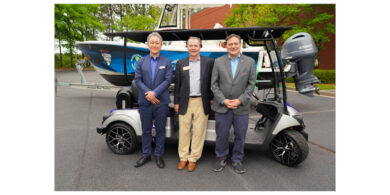At the helm: The feel good factor
A few weeks ago, the woman who cares for my nine-month-old son, Ben, resigned, giving only one week’s notice.
Cyndee was devoted to her job and very good at it. When Ben first set his eyes on her each morning, his face would light up with a big smile and his arms would reach out to her, beckoning her close for a hug.
But Cyndee’s husband was laid off a year ago and hadn’t been able to find work. Finally, he found a job in North Carolina, which required them to immediately relocate.
In a tough economy, work is hard to find. And for those who have work, sales have been hard to find. While business used to walk in the front door, the last few years have been different.
But finally we’re seeing signs that the economy – and the boating market – may be turning a corner. Increasingly, jobs are available, and so are sales, though not in the numbers or with the consistency that we might like. They can be found, if you have a willingness to seek them out and the tools to find them.
That’s why we compiled this issue’s Special Report. As resourceful as most dealers who survived the recession have become, there are still a lot of tools and information out there going unused. When employed correctly, that intelligence can make the difference between riding the market’s ups and downs or consistently outperforming it.
That’s especially important in moments like this, when the marketplace – despite its bright spots – remains unpredictable. While the economy is headed in a positive direction, there is a lot of talk of the possibility that rising fuel prices and global political unrest may derail its progress.
Tools and information from the outside world can give you a significant competitive advantage, but so can creating the right environment within your dealership. When it comes down to it, your sales prospects are just like the rest of us. They want to spend time – and ultimately buy products and services – from people who make them feel good. People who are passionate about what they do, confident in their success, and who display a willingness to go to the ends of the earth to satisfy their customer.
Mix in energy and vision, and you have some of the key attributes of what John Spader, president of Spader Business Management, refers to as the “start-up mentality.” In this issue’s Special Report, he points out that business leaders who possess those attributes are finding success, even in today’s unstable boating market.
But it’s not just “business leaders” who should reconsider the way they think about their work. After the challenges of the past few years, we’re all due to take a fresh look at the attitude we project.
Ultimately, with the right intelligence and the right frame of mind, we can give our customers the experience, and our teams the growth, that makes them feel good. Who knows? You might even get a big smile and a hug.




